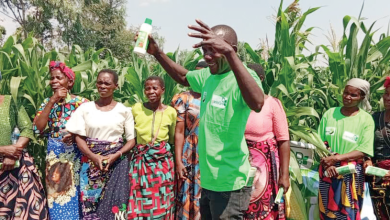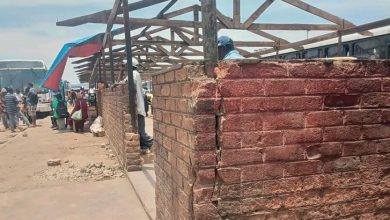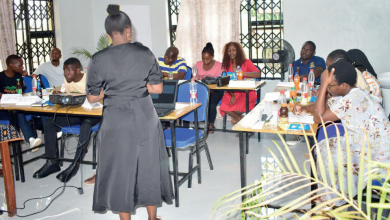‘African govts in high-riskpoll-rigging strategies’
Professor of democracy at the University of Birmingham Nic Cheeseman says it is a huge concern that more incumbent governments in Africa are now using high-risk strategies to rig elections.
He said this on Thursday during a webinar organised by Political Science Association (PSA) titled: “How elections are rigged: Insights from the world”.

Cheeseman, who i s also Birmingham’s Centre for Elections, Democracy, A c c o u n t a b i l i t y a n d Representation founding director said high-risk strategies have been observed in a number of countries in Africa.
One such high-risk tactic is the arrest of critics of the incumbent government, including opposition leaders and members of the civil society.
He said these are strategies that governments cannot get away with as people are aware of what the scheme is all about.
“It is concerning that we are seeing high levels of that across the continent. It might be a signal that people think they could get away with more than they could before.
“What is worrying is that some of this is working across the borders. Where was Kizza Bessigye taken from? He was not arrested in Uganda. He was taken from Nairobi, Kenya. Some of this is cross-border oppression,” he said. Bessigye is a Ugandan opposition leader.
Responding to a question from Nation Publications Limited on whether the arrests relate to rigging, Cheeseman said such incidents are not new, as the case of Uganda.
He o b s e r v e d t h a t governments that feel threatened are most likely to use violence and oppression as a rigging strategy, saying it could be worse now due to, for example, the defunding of United States Agency for International Development (USAid).
“It is a big signal that the ruling parties are not willing to lose power. Some of this is about sending a warning. Governments that feel they can win are not as oppressive. What I see in Tanzania and Uganda are governments that feel threatened.
“These are governments that feel that the West and international election observers are not going to be well-funded. The defunding of USAid, the fact that democracy does not seem to be promoted is emboldening leaders to go beyond by putting more people in jail and disrupting opposition campaigns,” he said.
During his presentation, Cheeseman also cited as a high-risk election rigging strategy, the Malawian context where correctional fluid called Tippex was used at the eleventh hour.
He said: “It is at that moment when the government realises that it is not going to win and all-of-a-sudden panics, that we can see poor quality, short-term and obvious strategies.”
One of the discussants, Professor Chrispin Mphande, who is a political and development analyst, observed that sponsored violence is another form of rigging, which he said is used by both the ruling and opposition sides.
He said:” This is more common in Malawi, where parties have stronghold regions. Parties sponsor violence and warn others against campaigning in some regions.
” In the conte x t o f misinformation, it can come from both the opposition and government sides, each accusing the other of certain atrocities. They may not have substantive information but would create scenarios to justify that the election was not free and fair.”
Over the recent past, the country has witnessed a wave of arrests of opposition politicians, civil society leaders and social media influencers, among others.
In March this year, our sister newspaper The Nation established that the Anti-Corruption Bureau (ACB) was set to arrest high-profile figures previously implicated in corruption scandals.
Three sources within ACB confirmed in separate interviews that the bureau has over “the past few months” been reviewing case files and secured “substantial evidence” against some former senior government officials in the Democratic Progressive Party (DPP) administration for alleged corrupt practices during their time in office.
In a written response to our questionnaire, ACB acting director general Hilary Chilomba, while refusing to share names involved and the nature of cases, confirmed the looming arrests.
“It is worth noting that our investigative function is undertaken under strict confidentiality and we cannot be playing this role through the media. [But] it is not long before the so-called big fish will be caught in the nets and brought ashore. We are independent and not afraid of anyone,” he said.





